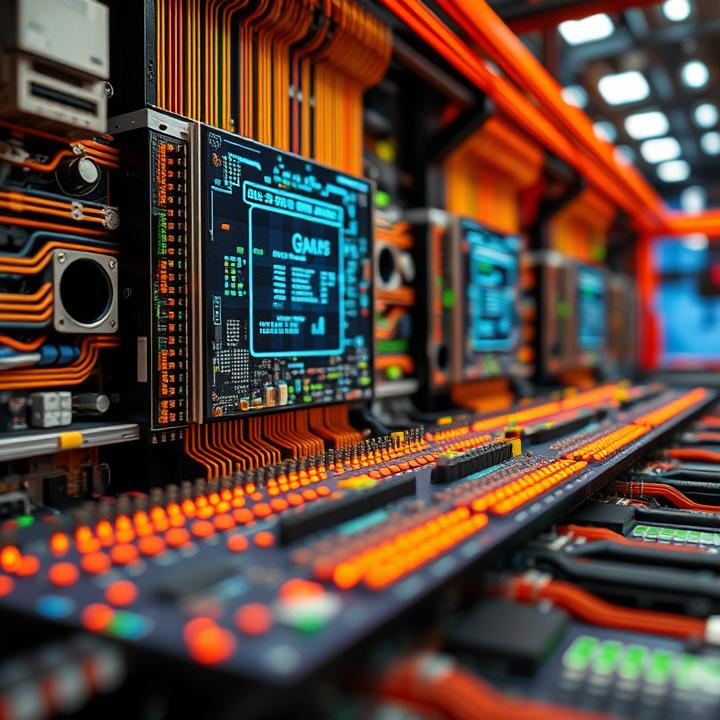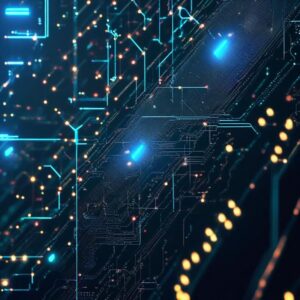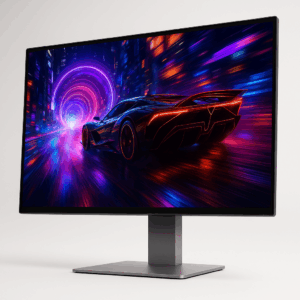Edge Computing Role in the Future of PC Technology

An extensive exploration of how edge computing is revolutionizing the PC industry by bringing processing power closer to data sources, reducing latency, improving efficiency, and enabling smarter, faster computing.
3.1 Understanding Edge Computing in the Context of PCs
Edge computing processes data at the ‘edge’ of the network, closer to where it is generated, instead of relying on a centralized cloud server. This approach significantly reduces latency, enhances data processing speeds, and improves overall efficiency. For PCs, this means faster real-time processing, enabling more responsive applications in gaming, streaming, and AI-based tasks.
3.2 How Edge Computing is Transforming PCs
- Real-Time Gaming and AI Processing: Edge computing enhances gaming experiences by processing game data closer to the user, reducing lag and providing a smoother experience. This technology is crucial for cloud gaming platforms, enabling players to enjoy high-quality gaming on PCs without needing high-end hardware.
- Autonomous Systems and IoT Integration: PCs equipped with edge computing capabilities can effectively handle data from IoT devices, making them essential for applications like smart homes, autonomous vehicles, and smart cities. For instance, edge-enabled PCs can manage data from multiple sensors in real-time, providing quick insights and decision-making capabilities.
3.3 Challenges and Opportunities in Edge Computing
- Scalability Issues: While edge computing offers significant benefits, scaling it across multiple devices can be challenging. Developing infrastructure that supports edge computing efficiently will be key to its widespread adoption in PCs.
- Security Concerns: Processing data at the edge introduces new security challenges, such as protecting data from unauthorized access or breaches. PC manufacturers are developing advanced encryption and authentication methods to ensure edge data remains secure.
3.4 Future Outlook: Edge Computing as a Standard in PCs
As edge computing becomes more prevalent, it will become a standard feature in high-performance PCs by 2027, enhancing capabilities in real-time data processing, AI, and machine learning applications. This will revolutionize industries such as healthcare, finance, and manufacturing, where rapid data processing is critical.
3.5 Case Studies: Edge Computing in Action
- Healthcare Industry: Edge computing in healthcare PCs is revolutionizing how patient data is processed and analyzed. For example, a hospital might use edge-enabled PCs to collect data from patient monitoring devices and process it locally, allowing for faster diagnosis and treatment. This reduces the time needed to transfer data to a central server, potentially saving lives in critical situations. Companies like Hewlett-Packard Enterprise (HPE) are actively working on edge computing solutions tailored for the healthcare industry, enabling real-time data analysis for doctors and healthcare professionals.
- Manufacturing and Industrial Automation: In manufacturing, edge-enabled PCs process data from various sensors on the production line, ensuring that machinery operates efficiently. This immediate data analysis allows for predictive maintenance, reducing downtime and improving productivity. Dell’s Edge Gateway solutions, for instance, are being used in factories to manage and analyze data directly at the source, enhancing operational efficiency.
- Smart Cities: Edge computing is fundamental to developing smart cities, where PCs equipped with edge capabilities manage traffic flow, street lighting, and public safety systems in real-time. Lenovo has been a key player in this space, deploying edge computing solutions in city infrastructure projects to improve urban management.
3.6 The Future of Edge Computing in PCs: What to Expect
- Integration with AI and Machine Learning: The combination of edge computing with AI and machine learning will allow PCs to perform complex tasks at lightning speeds. This means AI-powered personal assistants, real-time translation services, and advanced gaming experiences will become more common on everyday PCs.
Edge-Optimized Hardware: As demand for edge computing grows, we will see more PCs with hardware optimized for edge tasks, such as specialized processors and memory units designed to handle data-intensive applications efficiently.




